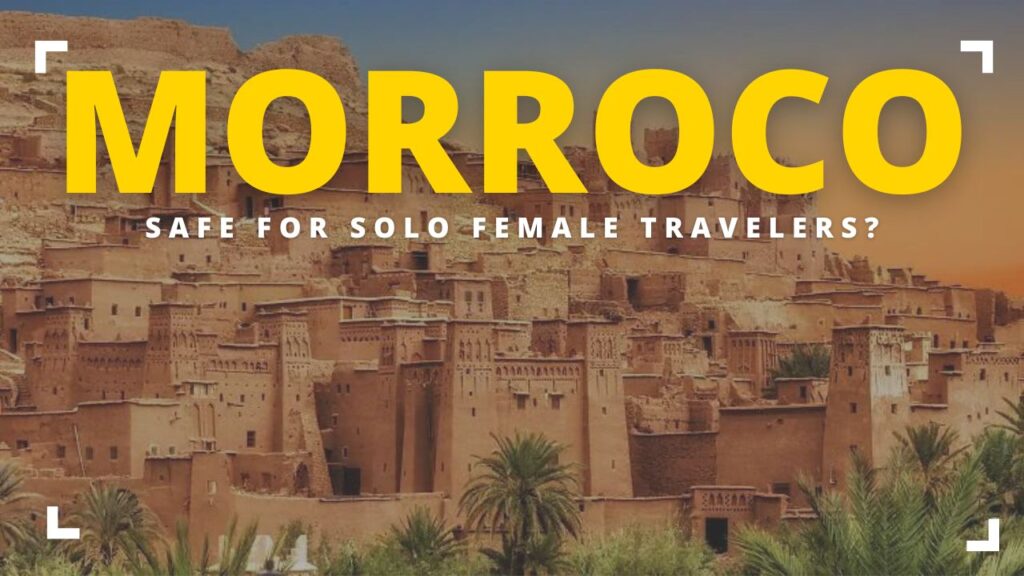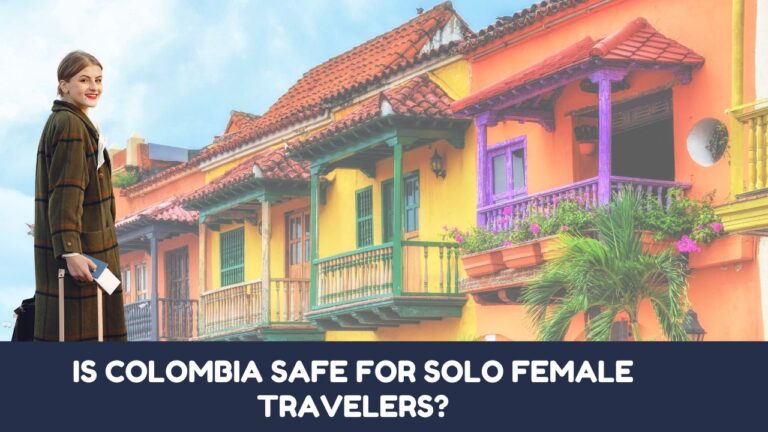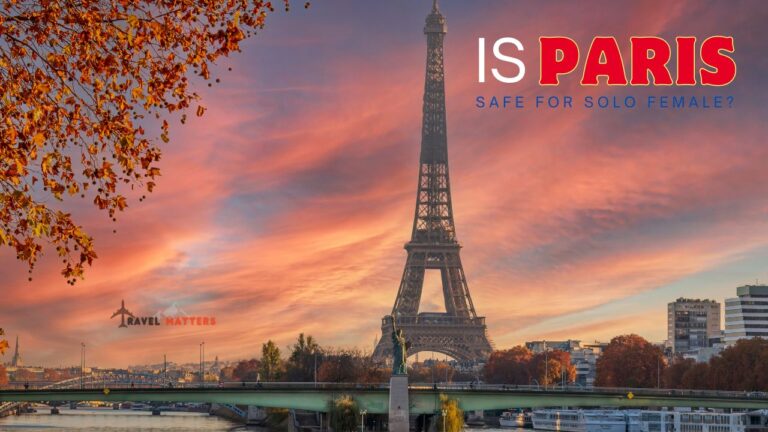Is Morocco Safe for Solo Female Travelers?
Morocco, with its enchanting blend of culture, history, and landscapes, is a destination that beckons solo female travelers from around the globe. However, safety concerns often loom large, prompting questions and hesitations. In this comprehensive guide, we’ll delve into the intricacies of Is Morocco Safe for Solo Female Travelers? debunking myths, offering practical advice, and sharing insights to ensure a fulfilling and secure journey.
Cultural Insights To Remember
Before embarking on your Moroccan adventure, it’s essential to familiarize yourself with the country’s cultural nuances.
- Djellaba and Hijab: Traditional attire for women in Morocco includes the djellaba and hijab. Understanding and respecting these cultural norms is important during your travels.
- Adan and Ramadan: The adhan, or call to prayer, occurs five times a day in Morocco. Additionally, Ramadan, the month of fasting for Muslims, is a significant time in the Islamic calendar. During Ramadan, restaurants and cafes may have altered hours of operation.
- Medina and Souk: The medina, or old city, is the historic heart of many Moroccan cities. Within the medina, you’ll find bustling souks and traditional markets where you can purchase a variety of goods, including souvenirs and trinkets.
Read More: IS JAPAN SAFE FOR SOLO FEMALE TRAVELERS?
Is Morocco Safe for Solo Female Travelers?
Safety Measures in Morocco
Researching destinations and understanding local customs are fundamental steps for ensuring safety. While Morocco is known for its hospitality, it’s wise to stay vigilant, especially in crowded areas. Dressing modestly and respecting cultural norms can help mitigate unwanted attention and foster positive interactions with locals.

Transportation Safety
Navigating Morocco’s transportation system can be an adventure in itself. From bustling city streets to remote desert roads, solo female travelers should exercise caution and opt for reputable transportation services. Negotiating taxi fares in advance and staying aware of surroundings can enhance safety during travel.
Accommodation Choices
Choosing safe lodging options is paramount for solo female travelers. While Morocco offers a range of accommodations, from budget hostels to luxury riads, it’s essential to prioritize safety and select accommodations in well-reviewed areas, especially for those exploring the medina.
Read More: IS ICELAND SAFE FOR SOLO FEMALE TRAVELERS?
Navigating Cultural Differences
Respecting cultural differences is key to a fulfilling travel experience in Morocco. While the country embraces modernity, certain traditions endure. During Ramadan, the month of fasting, travelers can expect changes in dining hours and cultural practices. Understanding and respecting these traditions enriches the travel experience.
Solo Travel Tips
Solo female travelers can enhance their experience in Morocco by staying open-minded and adaptable. Engaging with fellow travelers, joining guided tours, and exploring off-the-beaten-path destinations can lead to memorable encounters and experiences. Following are some tips for solo travel in Morroco.
- Open-mindedness: Keep an open mind while exploring Morocco. Embrace the cultural differences and approach your journey with curiosity and respect.
- Dress Appropriately: While exploring the medina, it’s advisable to dress modestly out of respect for local customs. Observing what local women wear can offer guidance on appropriate attire.
- Cash Handling: Carry cash with you, especially in areas where credit cards may not be accepted, such as the medina. Having cash on hand ensures you can navigate transactions smoothly.
- Sampling Moroccan Cuisine: Indulge in the delicious flavors of Moroccan cuisine. From savory couscous to sweet pastries like kaab el ghzal, there’s a culinary delight waiting to be savored.
- Cultural Experiences: Participate in cultural experiences such as mint tea pouring contests and haggling at local markets. These activities offer insights into Moroccan traditions and customs.
- Summer Precautions: Be prepared for high temperatures during the summer months, especially in regions where temperatures can soar to 50°C. Visiting during spring can offer a more comfortable climate.
- Interacting with Locals: When approached by vendors or beggars, politely decline by saying “La, shoukrane” (No, thank you). Additionally, be prepared for assertive driving and potential scams by taxi drivers in certain areas like Marrakech.
You might like: IS GREECE SAFE FOR SOLO FEMALE TRAVELERS
Emergency Protocols
Being prepared for emergencies is essential for solo travelers. You can dial the following emergency numbers in any emergency.
Emergency Numbers
In case of emergencies, it’s essential to know the relevant contact numbers:
- Allo SAMU 141: To call in case of COVID-19 symptoms.
- Ambulance: Dial 150 for ambulance services.
- Within the city: Contact the police at 19 or the fire brigade at 15.
- Outside the city: Reach out to the gendarmerie at 177.
Local Insight and Recommendations
Seeking advice from fellow travelers and locals can provide valuable insights into navigating Morocco safely. From hidden gems to recommended dining spots, local recommendations can enhance the authenticity of your travel experience.
Popular Destinations for Solo Female Travelers
Morocco offers a plethora of captivating destinations that are perfect for solo female travelers seeking adventure and cultural immersion. Here are some popular destinations to consider:
- Marrakech: Known as the “Red City,” Marrakech is a vibrant metropolis teeming with history, culture, and bustling souks. Explore the labyrinthine streets of the medina, visit the iconic Jardin Majorelle, and immerse yourself in the lively atmosphere of Djemaa el-Fna square.
- Fez: Steeped in history and tradition, Fez is home to one of the world’s largest medinas, a UNESCO World Heritage site. Lose yourself in the maze of narrow alleyways, marvel at the stunning architecture of the Bou Inania Madrasa, and discover the rich artisanal heritage of the city.
- Chefchaouen: Nestled in the Rif Mountains, Chefchaouen is renowned for its picturesque blue-washed buildings and tranquil ambiance. Wander through the winding streets adorned with vibrant blue hues, hike to the scenic Spanish Mosque for panoramic views, and unwind in the serene surroundings of this charming town.
- Essaouira: With its bohemian vibe and laid-back atmosphere, Essaouira is a coastal gem that offers a refreshing escape from the hustle and bustle of city life. Explore the historic ramparts, stroll along the windswept beaches, and indulge in fresh seafood at the bustling harbor.
- Atlas Mountains: For outdoor enthusiasts, the Atlas Mountains offer a plethora of opportunities for hiking, trekking, and adventure. Embark on a guided trek through the rugged terrain, visit traditional Berber villages nestled among the peaks, and marvel at breathtaking panoramic views.
- Merzouga: Journey to the heart of the Sahara Desert and experience the magic of the dunes in Merzouga. Camp under the stars in a traditional Berber tent, ride camels across the golden sands, and witness mesmerizing sunsets and sunrises over the vast desert landscape.
- Tangier: Situated at the crossroads of Africa and Europe, Tangier is a melting pot of cultures and influences. Explore the historic Kasbah, stroll along the picturesque waterfront, and soak up the eclectic blend of Moroccan and international flavors in this cosmopolitan city.
- Ouarzazate: Known as the “Gateway to the Desert,” Ouarzazate is a captivating oasis surrounded by dramatic desert landscapes and ancient kasbahs. Discover the cinematic allure of the Atlas Film Studios, explore the fortified village of Ait Ben Haddou, and embark on desert excursions to nearby attractions.
Handling Street Harassment
Street harassment can be an unfortunate reality for solo female travelers. Strategies such as assertive communication and seeking assistance from bystanders or authorities can help mitigate such incidents. Additionally, dressing modestly and avoiding isolated areas can reduce the likelihood of unwanted attention.
Budgeting for Safety
Carrying cash is essential, especially in areas where credit cards may not be accepted. While bargaining is common in Moroccan markets, it’s essential to negotiate respectfully and be aware of local customs. Investing in personal safety items, such as a money belt, can provide added security during your travels.
Cuisine and Cultural Experiences
Moroccan cuisine is a rich tapestry of flavors, aromas, and culinary traditions that reflect the country’s diverse cultural heritage. From savory tagines to sweet pastries, every dish tells a story and offers a glimpse into the soul of Morocco. Alongside the culinary delights, a myriad of cultural experiences await travelers, providing insight into the traditions, rituals, and hospitality of Moroccan society. Here’s a detailed look at the cuisine and cultural experiences that await you in Morocco:
Moroccan Cuisine:
- Couscous: Often referred to as the national dish of Morocco, couscous is a flavorful semolina pasta typically served with a savory stew of meat, vegetables, and aromatic spices. Traditionally prepared on Fridays, couscous holds a special place in Moroccan culinary culture and is enjoyed on festive occasions.
- Tagine: Named after the earthenware pot in which it is cooked, tagine is a slow-cooked stew bursting with flavors. Whether it’s savory meats, tender vegetables, or a combination of both, tagine offers a tantalizing blend of sweet and savory notes, often accompanied by preserved lemons, olives, and nuts.
- Harira: A hearty soup enjoyed throughout Morocco, harira is a comforting blend of tomatoes, lentils, chickpeas, and aromatic herbs and spices. Often served during Ramadan to break the fast, harira is a staple dish that nourishes both body and soul.
- Mint Tea: Known as “Moroccan whiskey,” mint tea is a ubiquitous beverage enjoyed throughout the day. Made with green tea, fresh mint leaves, and copious amounts of sugar, mint tea is a symbol of hospitality and is often served ceremoniously to guests.
- Pastilla: A savory-sweet delicacy, pastilla is a traditional Moroccan pie made with layers of flaky pastry filled with spiced meat, usually pigeon or chicken, and a medley of almonds, eggs, and herbs. Topped with a dusting of powdered sugar and cinnamon, pastilla is a culinary masterpiece that tantalizes the taste buds.
- Zaalouk: A flavorful side dish made with roasted eggplant, tomatoes, garlic, and aromatic spices, zaalouk is a versatile accompaniment to any Moroccan meal. Served with crusty bread or as a topping for couscous, zaalouk adds a burst of flavor to every bite.
Cultural Experiences:
- Mint Tea Pouring Ceremony: Participate in a traditional mint tea pouring ceremony and learn the art of preparing Morocco’s signature beverage. From the height at which the tea is poured to the intricate pouring technique, the mint tea ceremony is a ritual steeped in tradition and hospitality.
- Cooking Classes: Immerse yourself in Moroccan culinary traditions with a cooking class led by local chefs. Learn how to prepare classic dishes such as tagine, couscous, and pastilla using traditional cooking methods and fresh, locally sourced ingredients.
- Visit a Souk: Explore the vibrant markets, or souks, of Morocco and experience the sensory overload of sights, sounds, and smells. From colorful spices and exotic fruits to handcrafted textiles and artisanal goods, the souks offer a glimpse into daily life and commerce in Morocco.
- Traditional Music and Dance: Experience the rhythmic beats and mesmerizing melodies of traditional Moroccan music and dance. From the soulful sounds of the oud and the hypnotic rhythms of the darbuka to the energetic movements of belly dancers, Moroccan music and dance are an integral part of the country’s cultural identity.
- Hammam Experience: Indulge in a traditional hammam experience and rejuvenate your body and mind. With its origins dating back centuries, the hammam is a communal bathhouse where locals gather to cleanse, relax, and socialize. Treat yourself to a pampering session of exfoliation, steam baths, and massage, and emerge feeling refreshed and revitalized.
Whether you’re savoring the flavors of Moroccan cuisine or immersing yourself in the cultural tapestry of the country, Morocco offers a sensory journey like no other. From bustling souks to tranquil riads, each experience invites you to discover the beauty, hospitality, and richness of Moroccan culture.
Conclusion
In conclusion, Morocco offers a wealth of opportunities for solo female travelers seeking adventure and cultural immersion. By embracing cultural differences, prioritizing safety measures, and staying open-minded, women can explore the diverse landscapes and vibrant cities of Morocco with confidence and peace of mind.
FAQs
- Q: Is Morocco safe for solo female travelers?
- A: While precautions are necessary, many women have traveled to Morocco alone and had positive experiences.
- Q: What are some safety tips for solo female travelers in Morocco?
- A: Research destinations, dress modestly, stay vigilant, and avoid walking alone at night.
- Q: How should I handle street harassment in Morocco?
- A: Stay assertive, seek assistance from bystanders or authorities if needed, and avoid engaging with harassers.
- Q: Can I meet other solo female travelers in Morocco?
- A: Yes, joining group tours, staying in social hostels, and connecting through online forums are great ways to meet fellow travelers.
- Q: What should I do if I encounter a beggar in Morocco?
- A: While poverty is evident in some areas, it’s important to exercise caution and avoid giving money directly to beggars. Instead, consider supporting local charities or organizations that address social issues.






